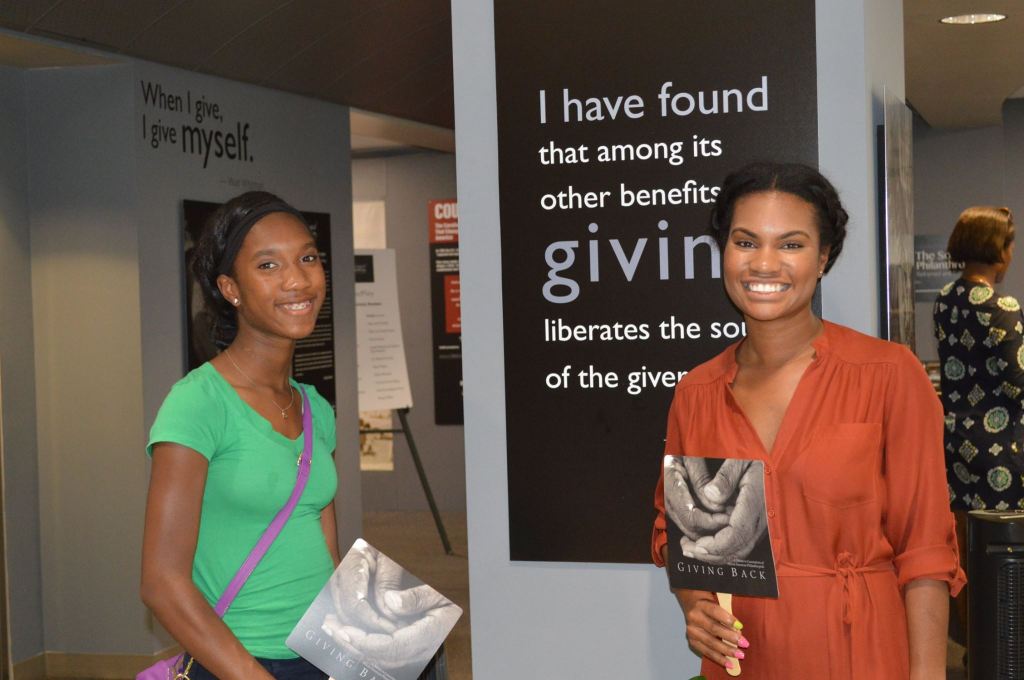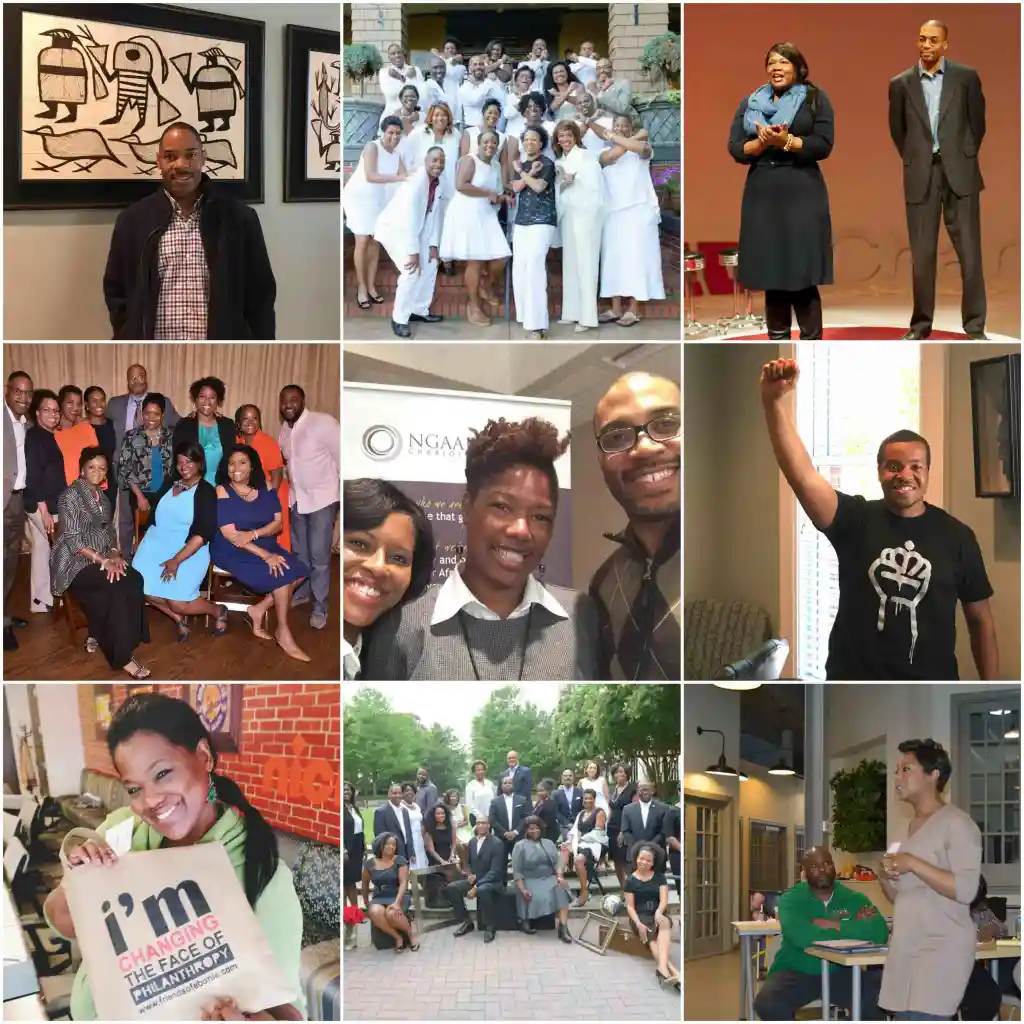
Charles W. Thomas Jr, photographer
“A small body of determined spirits fired by an unquenchable faith in their mission can alter the course of history.” — Gandhi
Six years. I still can’t quite believe this week marks six years since we set out to create a giving circle that would eventually become known as New Generation of African American Philanthropists. Scrolling through the slideshow of photographs below brings credence to the span of time and experiences from the start of our journey together, June 2006.
Much like a book club or investment club, a giving circle is made up of people who have common interests and shared values. In our case, we’re interested in contributing to positive change in our community. We’ve decided to pool our charitable dollars to award grants to nonprofit organizations having a desirable impact on large numbers of African American children, families and neighborhoods.
Our Soul | who we are
A giving circle that’s giving back
Our Mind | what we envision
A healthy, safe and prosperous community for African Americans to live, work and flourish
Our Heart | why we care
Inextricable ties to past, present and future generations
Our Hands | how we work
Promoting philanthropy—the giving of time, talent and treasure—among African Americans with the goal of enhancing the quality of life within our communities.
Founded in 2006 by a group of nearly 20 donor-members, New Generation of African American Philanthropists or, for short, NGAAP-Charlotte aspires to have an impact in Charlotte and beyond. Our grantmaking, community service and civic engagement activities have helped us build new relationships, strengthen existing connections and influenced our development as leaders, advocates, philanthropists and change-makers.
Here’s a numerical account of our six-year exploration of new ways, new ideas and new paths to making a difference:
1 dollar a day, at least, per year committed by members
5 years of member participation at planning retreats, leadership summits and conferences
6 nonprofits awarded grants to advance their missions
11 sponsoring partners, to date, on the Giving Back Project
13 connections to other CIN giving circles comprising donors of color, nationwide
17 founding members
18 months dedicated to starting up the circle with a thoughtful, sustainable plan
22 people pledged participation as members since the circle’s founding
40 media stories on collective giving & inclusive philanthropy, featuring NGAAP-Charlotte
72 months of pursuing a collective vision and mission
200 Black donors engaged to provide content for the book Giving Back
250 towel sets donated to men seeking shelter and comforts of home
365 book pages of stories and photography to reframe portraits of philanthropy
2200 audience members across 11 cities, 7 states engaged via the Giving Back Project
3000 social media connections via Twitter and Facebook
5500 volunteer hours…likely more…devoted to community service by circle members
10,000 dollars awarded to Jacobs Ladder, our largest single grant yet
40,000 dollars distributed in grants
100,000 dollars invested in reframing portraits of philanthropy
Through the Giving Back Project’s book development and community engagement campaign, members of NGAAP-Charlotte are reframing portraits of philanthropy. The circle ventures to reclaim the root meaning of philanthropy—love of humankind—by celebrating African American history and traditions. The group explores new as well as time-honored ways of giving and embraces a definition of philanthropy that encompasses gifts of not only money, but also time, energy and intellect.
Our collective work aims ultimately to ignite a movement of conscientious philanthropy by empowering a generation to recognize their power and responsibility to give back. Join our work by becoming a member or starting your own giving circle and by committing to philanthropy that’s strategic, inclusive and responsive.
DONOR-MEMBERS (2006-2012)
Men Tchaas Ari
Renee L. Bradford
Heather Carty Ward
Deborah Charles
Rashad Davis
Tonya Edwards
Dawn Fisher
Ed Franklin
Diatra Fullwood
Valaida Fullwood
Melandee Jones
Ohmar Land
Eric Law
Tameka Lester
Patricia Martelly
Fontella McKyer
Jennifer Miles
Vernetta Mitchell
Cathy Peterson
Meka Sales
Jenene Seymour
Jehan Shamsid-Deen
Annette Taylor
This slideshow requires JavaScript.






![GivingBackCPCSInternationalFellows[5]](https://valaida.files.wordpress.com/2013/10/givingbackcpcsinternationalfellows5.jpg?w=584)





